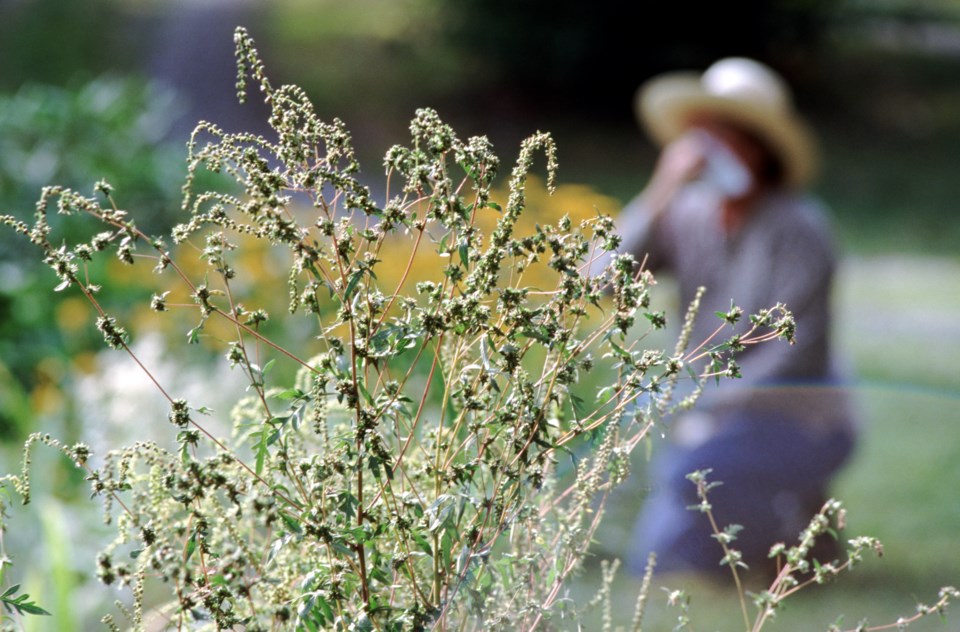Summer is here but pollen allergies aren't leaving any time soon, according to numerous Richmond News readers in a recent poll.
We asked readers of the News whether their allergies have gotten worse since the weather got warmer, and around 49 per cent reported that they can't stop sniffling and sneezing.
Meanwhile, 25 per cent saw no difference compared to before, and 22 per cent are not affected by pollen allergies.
Symptoms of pollen allergies include itchy and watery eyes, sneezing, runny, stuffy, or itchy nose, and fatigue.
According to the Weather Network, pollen levels remain moderate, at least until Thursday, Jul. 14. While tree pollen is often the leading cause of allergies in spring, the main culprit for the summer sniffles appears to be grass pollen. Weather Underground is projecting high levels of grass pollen, while pollen from trees and weeds remains low.
Part of the reason why Richmond News readers are experiencing more severe allergies could be due climate change. Glacier Media previously reported that the length of pollinating seasons is being affected by global warming - and pollens are also becoming more immunogenic, which will cause more severe reactions.
Richmond News polled 542 Richmond News readers and asked the question: Have your pollen allergies gotten worse since summer began?
The poll ran from 6/29/2022 to 7/12/2022. Of the 542 votes, we can determine that 125 are from within the community. The full results are as follows:
Results are based on an online study of adult Richmond News readers that are located in Richmond. The margin of error - which measures sample variability - is +/- 4.2%, 19 times out of 20.
Richmond News uses a variety of techniques to capture data, detect and prevent fraudulent votes, detect and prevent robots, and filter out non-local and duplicate votes.



